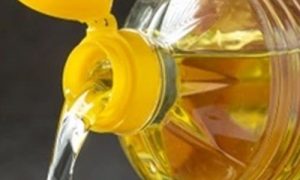Ghana imports palm oil despite being the birthplace of the oil palm

Ghana, once a leader in palm oil, now imports over 100,000 tons yearly due to low yields, aging plantations, and limited investment. Small farmers lack modern processing and affordable financing, reducing output. Experts say coordinated support through the Tree Crops Development Agency, better planting material, and investment could revive production and reduce imports.
Once a symbol of prosperity and self-sufficiency in Ghana, the palm tree is now forced to import over 100,000 tons of crude palm oil annually to meet domestic demand. Despite fertile land, a favorable climate, and a long tradition of cultivation, the sector has declined due to low yields, lack of investment, and technological backwardness. Most smallholder farmers, who account for up to 80% of the fruit’s production, use outdated equipment, wasting up to half of their potential oil production.
Paradoxically, it was from Ghana that oil palm was initially exported to Southeast Asia, where Malaysia and Indonesia built a powerful export-oriented industry around it, while the plant’s native land was marginalized. Currently, Ghana has approximately 350,000 hectares of plantations, but the average yield is only 4-6 tons per hectare, while with proper care, 15-22 tons per hectare can be achieved. Among the main problems are aging plantations, a shortage of high-quality planting material, weak advisory services, and a lack of long-term financing.
Access to capital remains the biggest challenge for farmers. Commercial banks are reluctant to finance long-term projects due to the long maturation period and price risks, while microfinance institutions offer loans at excessively high interest rates. Without affordable financing, producers are unable to renew their plantations, apply fertilizers, or modernize their processing facilities, leading to declining yields and lower incomes.
Experts believe the solution lies in reviving coordinated government policy. The new Tree Crops Development Agency (TCDA) has the potential to unite farmers, processors, financiers, and donors in a common development strategy for the sector. This includes the implementation of certification systems, digital monitoring, specialized investment funds, and blended finance instruments. Such steps, according to analysts, could revive Ghana’s “golden crop” and reduce its dependence on palm oil imports.
To Read more about Edible Oil News continue reading Agriinsite.com
Source : Ukr Agro Consult















